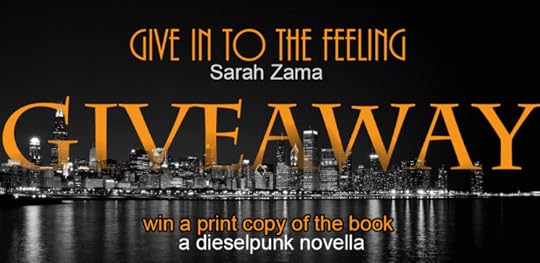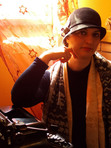Sarah Zama's Blog, page 57
December 31, 2016
Last chance at winning a print copy of Give in to the Feeling
All you have to do is enter the giveaway and first of all, you'll receive the pdf of my series The Roaring Twenties (and this is certain and free!) and you'll get a chance at winning ne of the four first copies of my book.
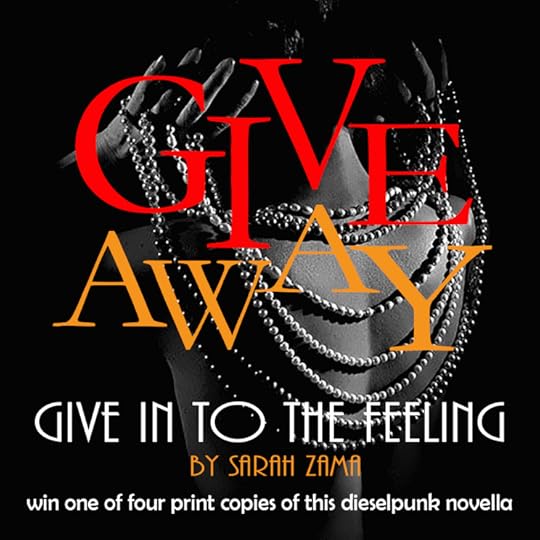
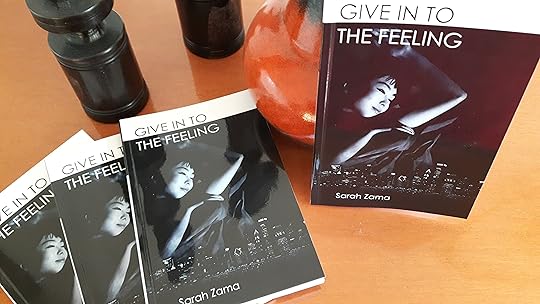
#mc_embed_signup{background:#fff; clear:left; font:14px Helvetica,Arial,sans-serif; }
/* Add your own MailChimp form style overrides in your site stylesheet or in this style block.
We recommend moving this block and the preceding CSS link to the HEAD of your HTML file. */
Subscribe to my mailing list and getg a chance at winning a print copy of my novella GIVE IN TO THE FEELING - You wil receive a FREE copy of the PDF "Roaring Twenties A to Z"
* indicates required
Email Address *
First Name
GIVE IN TO THE FEELING
Chicago 1924
When Susie dances with Blood in Simon’s speakeasy, she discovers there’s a new world beyond the things she owns and the things she’s allowed to do. Blood values her thoughts, her feelings and offers his respect for her as a person.
So different from the luxury Simon has offered her. The exciting club nights and the new freedom of dressing and doing as she pleases.
But Susie’s still Simon’s woman, and he won’t allow her to forget it.
Soon, Susie there might be more than two men fighting over her. As Blood and Simon confront each other, Susie sees the spirit world filter into her world and crack the reality she knows. And when she looks through the shards of the illusion she’s been living, Susie realises making a choice between the two will be more difficult than she has ever imagined.
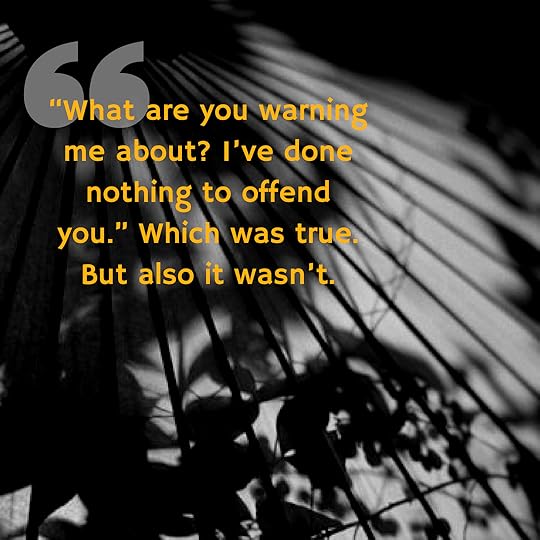
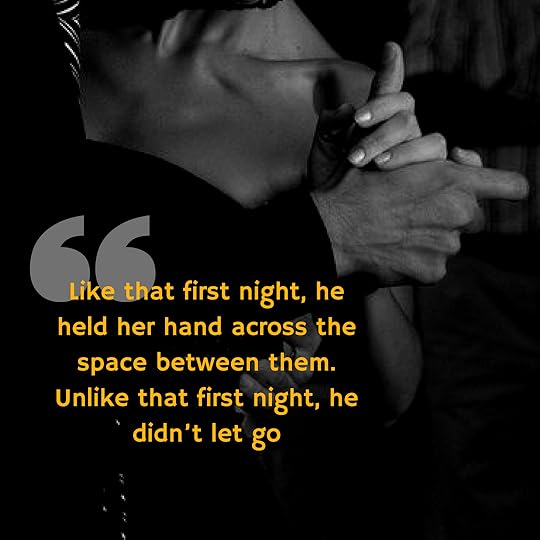
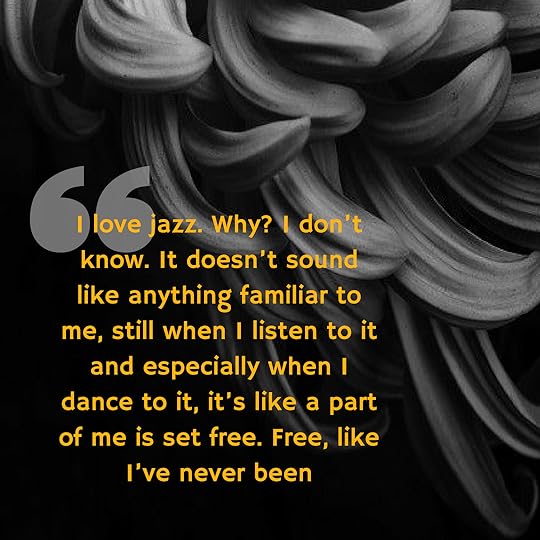
Wouldn't you start the year with a story of mystery, self-revelation, love and hope for the future?
This is my wish for you for a new scintillating year. Come get it!
The post Last chance at winning a print copy of Give in to the Feeling appeared first on The Old Shelter.
December 25, 2016
Marry Christmas… 1920s Style
To all of you who celebrate Christmas: have a very Marry Christmas with your family and loved one.
To all of you who don’t: have a nice festive season.
And as you know, I like doing things in style…
ENJOY!
The post Marry Christmas… 1920s Style appeared first on The Old Shelter.
December 23, 2016
Liebster Award – A Reader’s Life
Yes true, JA Goodsell from The Course of Events Blog nominated me for this award ages ago, but I really wanted to respond the call before the year ends.
So here I am, answering her questions.
Hope you’ll enjoy.
Rules of the Award
 If you choose to accept the award…
If you choose to accept the award…
Thank the blogger who nominated you (don’t forget to include a link to my blog!)
Answer the 11 questions I gave you
Nominate up to 11 other bloggers yourself (preferably those with fewer than 500 followers, this is more of a newbie award)
Provide those bloggers with 11 questions of your own for them to answer
Don’t forget to put the Liebster Award sticker on your blog!
And here are JA’s 11 questions for me
Who is your favorite author and why?
Favourite authors are strange beasts, aren’t they? They tend to change over the years, along with how we change as readers (and sometimes as authors) and so, depending in which moment you find yourself as a reader, you’ll give a different answer.
My first favourite author was Stephen King. I really liked (and I still appreciate) his imagination and attention to characters, the way he studiously made them all quirky and unique, even when they appear for just a few pages. I also really liked his inventiveness in terms of style, his personal way of create sentences. I think this is the most enduring lesson I’ve learned from him.
Then in my teen years, my favourite author was Marion Zimmer Bradley, and unsurprisingly so. Her stories were mostly about women, girls who were discovering themselves, their souls, their powers and their bodies. For a very long time, my prose was dense and brooding like Bradley’s, and my settings busy and detailed as hers.
Just out of my teens, I discovered David Gemmell and fell in love. I still think my style as an author comes vastly from him. The kind of characters I use, the themes I’m most fond of, the way characters reveal themselves through dialogue. It certainly comes from him my love for the short, clean sentence (widely different from Bradley’s) and for the visuality of actions. And, I’d say, my inclination from action.
But today, if you ask me who my favorite author is, I’ll say Sherman Alexie. I just love his style which merges together reality and fantasy is such seamless way. I love the imagines he can create with words, the way his characters reveal their soul without brooding, the way action always says something about the characters. Above all I love his ability to create meanings though layers of storytelling.
That’s the kind of author I want to be.
What are your thoughts on e-readers?
Well, I used to be quite scheptic about e-readers, but after I bought my own, I had to change my mind… at last partially. E-readers are very handy, no doubt about it. They may hold hundreds of pages and I can read PDF on them without having to print them out (that’s the original reason why I bought one). I can also try authors paying just a few euro for a book and discard it if I don’t like it, without that book taking up space on my (shrinking) shelves.
I’ll admit I’d be sorry if I couldn’t use one, now.
What is the most exciting thing you’ve ever done (that was also legal)?
Mhm… nothing comes to mind. I must not be a very adventurous person.
Though my long stay in Dublin was quite exciting, if I think about it. I left with just a vague idea of an accommodation and no job. I knew I had to find one in Dublin and soon if I wanted to stay (and certainly I did want to stay). I had to accommodate to live with other four girls in an apartment, which sometimes was hard, but other times was fantastic. I met lots of people during that year in Ireland.
I still miss Dublin a lot.
Does your family read your blog?
No. Only my sister can read English, and she’s not interested in what I blog about.
What do you blog about and why?
I’d say I blog about my passion, which is writing. It has always been writing, but in recent years it has taken the shape of dieselpunk and so the connected era. I’ve always been fascinated by the diesel era (particularly the 1930s/1940s), and after I discovered the 1920s I really got into it.
I’ve also always been into history, since when I went to school. And the more I studied history, the more I wanted to know about people. Social history is much more fascinating to me than any historical event.
So this is what I blog about: social history of the 1920s and writing.
E-book or paper book?
Always paper books.
E-books are handy and cheap, but nothing is like a real book.
Do you listen to any podcasts (if so, which ones)?
I don’t normally listen to podcast, I never seem to find time to listen (I’m not good at listening while doing other things). But sometimes I’ve listened to the Diesel Powered Podcast. I really like the way they dissect dieselpunk subjects. It makes me think.
How do you work your daily life into your writing/blog?
Snatching every bit of time I can.
Normally I write in the mornings, since I only work in the afternoons. I also commute to work, so I normally try to use the time on the train to read (that’s my main reading time), and since I normally have a bit of time (like 20/30 minutes) between arriving in Verona and actually going to work, I normally use that time to sketch most of my blog posts.
What has been the most meaningful piece of literature in your life?
That’s a very scary question.
Well, if you mean what piece of literature changed your life in a meaningful way, I’m not sure I can choose just one. But if you mean what piece of literature marked your life in a permanent way, I’d mention an obscure fairy tale written by a teacher and her class of kids in the late 1970s. My teacher read it aloud to us. That’s how I started writing myself. I was nine.
Do you listen to music while you write/blog?
No, I can’t write with any kind of noise, not even music. But I do listen to music before I write. It helps me get in the mood.
Kirk or Picard?
I’m not a trekkie, sorry.
And this time, since I am in a festive mood, I’ll leave the award opened. Whoever fancy grab it, pleas just do so.
Here are my questions for you:
Have you always been into history, or is it a recent passion?
What is it that has drawn you to history?
What is your favourite historical era and why?
Is there an historical person that you particularly admire? Why?
Maintaining a historical blog is its own peculiar job. Sharing historical facts requires knowledge and research. What is your payback?
What kind of historical articles do you like to write best? Why?
Blogging is becoming more and more a visual activity. How do you address this on your historical articles?
How do you think our past may help us address our future?
Back in school, I already loved history, but I could never remember a date. To me, it was more of a fascinating storytelling. How was it for you?
Social history is my favorite section of history. What is yours and why?
Try to tell a child into loving history. What would you tell them?
Have a very Happy Christmas and a Fantastic New Year
The post Liebster Award – A Reader’s Life appeared first on The Old Shelter.
December 19, 2016
Shadows (Michael Jackson)
– Michael Jackson
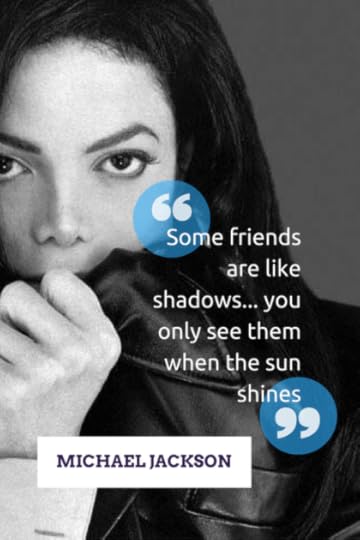
The post Shadows (Michael Jackson) appeared first on The Old Shelter.
December 15, 2016
Thursday Quotables – Babylon Berlin
Was the fake Kaiser already on his way down? If so, Bruno would intercept him. If he was still scrambling around up here it would be his responsibility to nab him, Gereon Rath, vertigo or no. The whistling of the wind became unbearable as, carefully, he climbed down to a more sheltered level, and suddenly Wilhelm II was standing right in front of him, just as startled as the detective. He had lost half of his fake moustache during the pursuit.
‘Fuck off, pig,’ he said, his voice nervous and shrill and quite the opposite of majestic. Madness was in his eyes, an impression only intensified by the smear of greasepaint.
Cocaine, Rath thought, he’s on cocaine, he’s been snorting it in the toilet. Just what I need.
‘C’mon pal,’ he said, trying to sound as calm as possible, ‘you must see this is pointless. Why don’t you spare us any further trouble?’
‘I ain’t going to spare you nothing,’ the man said in a thick Berlin accent, and suddenly a glistening piece of metal was in his hand. Great, Rath thought, a junkie with a shooter.
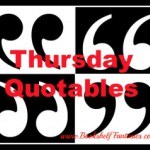 I have very contrasting feelings about this novel, and they come from its dual nature. On the one hand, it is a very enjoyable crime mystery, with a lot of actions and quite a few ideas I didn’t see coming. The central part of the novel is truly a page turner, as mysteries pile up and troubles make every step a bet. At a certain point, I wanted to read as fast as possible because couldn’t figure out how Rath could possibly get out of his entangled situation. Sadly, I don’t think the author exploited the tension as best he could. The end is a bit lame in comparison with the rest of the plot, but still I’d consider this an enjoyable read.
I have very contrasting feelings about this novel, and they come from its dual nature. On the one hand, it is a very enjoyable crime mystery, with a lot of actions and quite a few ideas I didn’t see coming. The central part of the novel is truly a page turner, as mysteries pile up and troubles make every step a bet. At a certain point, I wanted to read as fast as possible because couldn’t figure out how Rath could possibly get out of his entangled situation. Sadly, I don’t think the author exploited the tension as best he could. The end is a bit lame in comparison with the rest of the plot, but still I’d consider this an enjoyable read.
On the other hand, this story is set in Berlin in 1929 and so is supposedly a historical novel too. I say ‘supposedly’ because there is nothing historical about it. There are so many inaccuracies it is even embarrassing. I actually noticed that in many occasions the author was clearly seeing a contemporary setting, to the point I suspect the story was originally set in today Berlin and only afterward it was turned into a historical novel.
Quite a pity, since 1920s Berlin would be a fantastic place to set a story, especially a mystery.
So, depending what kind of reader you are, you may love this story or hate it. Because I’m a mystery reader as well as a historical reader, I enjoyed it… but also I quite hated it.
This is the original passage from Der nasse Fisch:
Er zwang sich, zurück auf das Gerüst zu schauen. Wo war der falsche Kaiser? Wieder auf dem Weg nach unten? Auch gut, da würde Bruno ihn in Empfang nehmen. Doch wenn der Kerl noch hier oben rumturnte, dann wäre es seine Aufgabe, die Ratte zu verschnüren, die Aufgabe von Gereon Rath, Höhenangst hin oder her. Er versuchte zu lauschen, doch der Wind pfiff unerträglich laut. Vorsichtig kletterte er eine Etage tiefer, hier war es wenigstens etwas windgeschützt.
Und plötzlich stand Wilhelm zwo vor ihm.
Der Mann schien ebenso erschrocken zu sein wie der Kommissar. Seine Augen waren weit aufgerissen, eine Hälfte seines falschen Schnurrbarts hatte er auf seiner wilden Flucht verloren.
»Hau ab, Bulle«, sagte er. Seine Stimme klang nervös und schrill. Alles andere als majestätisch. Seine Augen hatten etwas Wahnsinniges, ein Eindruck, den die verschmierte Theaterschminke noch verstärkte.
Kokain, dachte Rath sofort, der ist auf Koks, der hat sich vorhin auf dem Klo die Nase vollgezogen. Das kann ja heiter werden.
»Mensch, Junge«, sagte er und versuchte, möglichst ruhig zu klingen, »sieh doch ein, dass es zwecklos ist. Du hättest uns beiden schon die Kletterei ersparen können, erspar uns wenigstens weiteren Ärger.«
»Dir erspar ick überhaupt keen Ärja«, sagte der Mann. Plötzlich hatte er etwas metallisch Glänzendes in der Hand. Na prima, dachte Rath, ein Kokser mit Knarre.
—————————————–
In post is part of the Thursday Quotables mem. If you want to discover more about this meme and maybe take part in it, head over to Bookshelf Fantasies
The post Thursday Quotables – Babylon Berlin appeared first on The Old Shelter.
December 11, 2016
The Coffee Book Tag – Dieselpunk Style
It's been a lifetime since last I did a book tag. Recently, I came across a book tag on Book Amino, the Coffee Book Tag, and since I'm a reader and a coffee drinker, I couldn't resist!
So, here's my take at it. Welcome to the Coffee Book Tag - Dieselpunk Style
Black Coffee
(Name a series that's tough to get into but has hardcore fans)
Gereon Rath Krimi Series
Volker Kutscher
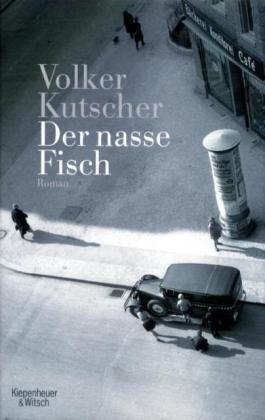
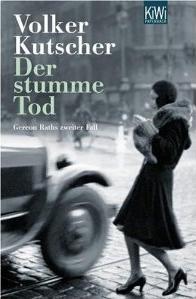
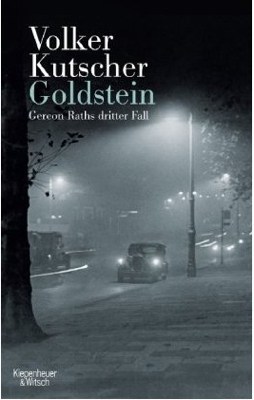
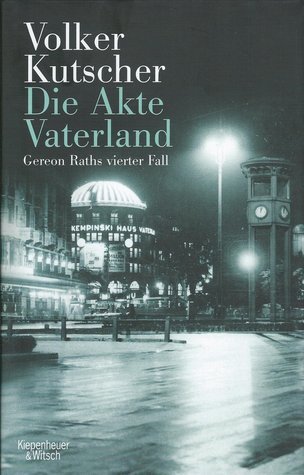
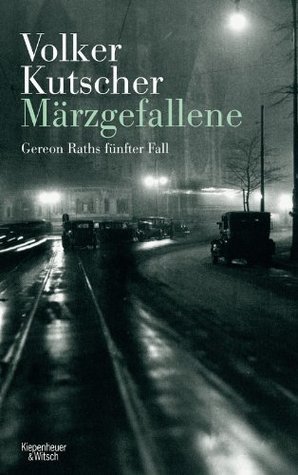
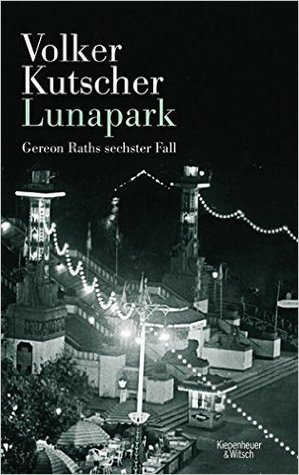
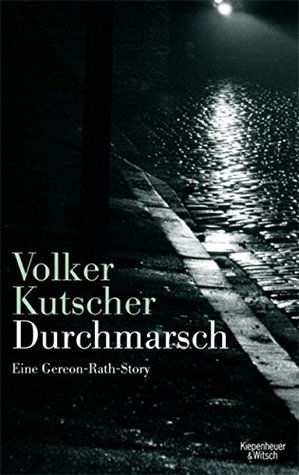
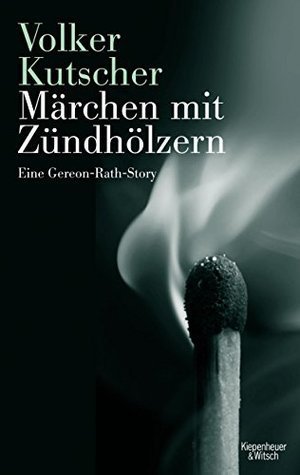
I wish my German would allow me to read the series in the language it was written into, but at the moment I have to content myself with an English translation, though only the first book of the series (Babylon Berlin) is currently available in English.
A mystery series set in Berlin in 1929, involving the central Alexanderplatz police station, the Homicide Division in particular. The first book started reeeeeealy slow. I was quite disappointed, for the pace, sure, but especially for the setting. True, this is set in 1929... but there is nothing historical about it. I'm sorry to say this is actually a contemporary story slapped down in 1929 Berlin without any concern for historical accuracy.
So you'll understand why I was disappointed, and I was actually wondering how it was that in Germany this series was so popular that it will soon become a tv series, when things turned interesting. Granted, the historical setting didn't get any better, but the story truly turned into a page turner. There is an idea at the heart of the story that I really didn't expect and made things so much more interesting.
Would I recommend it? Well, it depends. If you like mysteries, this is sure a good read. If you like historical novels... ehhh, maybe not.
Peppermint Mocha
(Name a book that gets more popular during the winter or a festive time of year)
The Girls at the Kingfisher Club
Genevieve Valentine
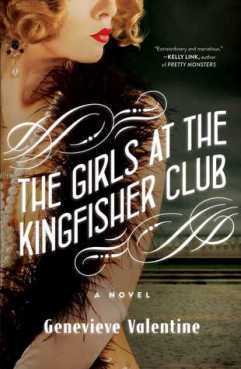 Now I’ll admit I haven’t read the book yet, though I’ve bought it recently, but it does sound like something for the festive season. First of all, it is a fairy tale retelling, specifically of the Twelve Dancing Princesses… and it is set in 1920s New York. How could I ever resist this?
Now I’ll admit I haven’t read the book yet, though I’ve bought it recently, but it does sound like something for the festive season. First of all, it is a fairy tale retelling, specifically of the Twelve Dancing Princesses… and it is set in 1920s New York. How could I ever resist this?
The book has been out for some time and I actually read quite good reviews about it. So I’m really curious to read it.
From award-winning author Genevieve Valentine, a "gorgeous and bewitching" (Scott Westerfeld) reimagining of the fairytale of the Twelve Dancing Princesses as flappers during the Roaring Twenties in Manhattan.
Jo, the firstborn, "The General" to her eleven sisters, is the only thing the Hamilton girls have in place of a mother. She is the one who taught them how to dance, the one who gives the signal each night, as they slip out of the confines of their father's townhouse to await the cabs that will take them to the speakeasy. Together they elude their distant and controlling father, until the day he decides to marry them all off.
Hot Chocolate
(What is your favourite children book?)
The Diviners
Libba Bray
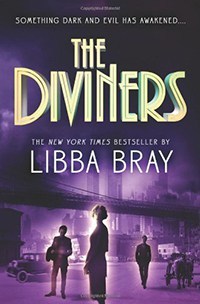
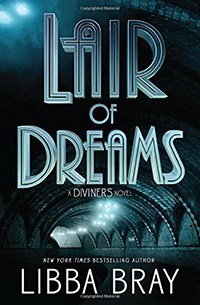
I’ll have to cheat again. When I was a child, I’ve never read a novel that may fall into the dieselpunk/diesel era genre (though I watched my share of films from the diesel era). So I thought to mention The Diviner because this is really a very popular book for YA. Set in 1920s New York, involving spirits and magic… it is the right fare.
I did read the first few chapters of the book, you know, the one that come with a book preview, and while the writing is really captivating, I can’t say I appreciated the historical setting too much. Inaccurate for the sake of making it politically correct… which is possibly the worst reason for being inaccurate – but it’s just my opinion.
There’s a sequel to The Diviners, Lair of Dreams, which apparently wasn’t quite as popular.
Double Shot of Expresso
(Name a book that kept you on the edge of you seat from start to finish)
The Wise Man Says
Bard Constantine
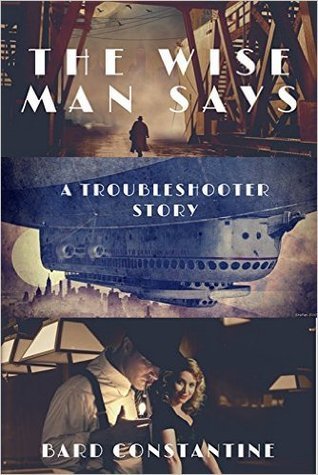
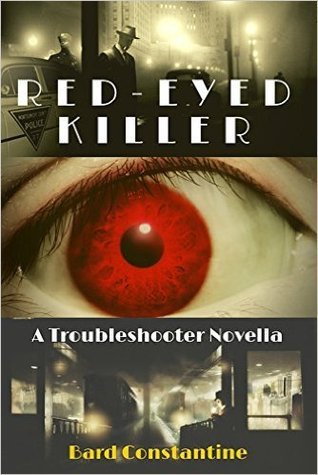
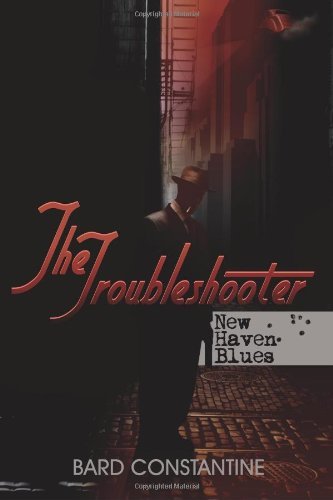
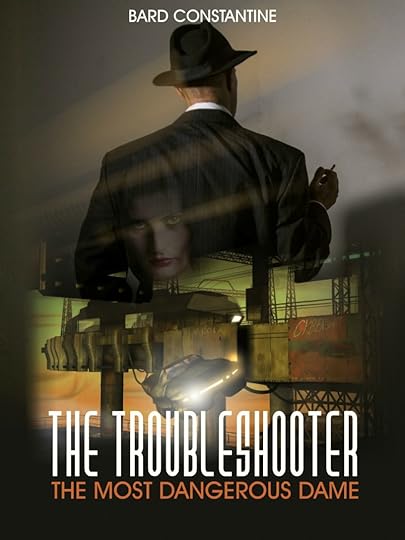
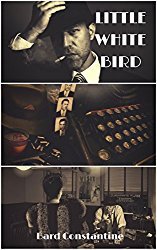
The Wise Man Says is actually a prequel, in the form of a novella, to Bard Constantine’s dieselpunk series The Troubleshooter. I read the first book in the series before I read the novella, and really the novella sounds a lot more mature than the first book. There is a definite noir sense to it, a more ominous atmosphere and where New Heaven’s Blues sounds like a fun adventure, The Wise Man Says is more of a mystery, truly noir story.
I really really liked it.
Starbucks
(Name a book you see everywhere)
Dragonfly
Charles A. Cornell
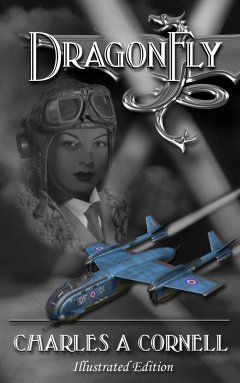 The thing with dieselpunk books is that there aren’t a lot of them – at the moment. But if I had to mention the one that comes up more frequently in the community, I’d say Charles Cornell’s Dragonfly. Cornell is very popular in the dieselpunk community, he is very active too and is considered one of the leading author in the retrofuturistic subgenre.
The thing with dieselpunk books is that there aren’t a lot of them – at the moment. But if I had to mention the one that comes up more frequently in the community, I’d say Charles Cornell’s Dragonfly. Cornell is very popular in the dieselpunk community, he is very active too and is considered one of the leading author in the retrofuturistic subgenre.
This is kind of a odd dieselpunk story. There are elements that are undoubtedly characteristic of the genre: WWII setting, aerial fights (the best part of the book, in my opinion), secrets, the Nazis as the evil enemy. But there are also a few different ideas that really sounds unique: alchemy and the mix in of Celtic legends are the most notable.
Personally, I didn’t feel they worked perfectly together, but it is indeed a different take at the genre.
In 1942 an unlikely heroine changes the course of history. Twenty-two year old RAF pilot Veronica ‘Ronnie’ Somerset is determined to overcome every obstacle to become Britain’s first female combat pilot. When 'Ronnie' is assigned to Enysfarne, a mysterious Royal Navy base off the coast of Cornwall, fate places her inside the cockpit of a revolutionary new aircraft powered by quadra-hydrogen, the DragonFly, a plane that carries the hopes of Britain on its blue and silver wings.
The Hipster Coffee Shop
(Give a book by an indie author a shout out)
Broken Time Blues
Edited by Jaym Gates & Erika Holt
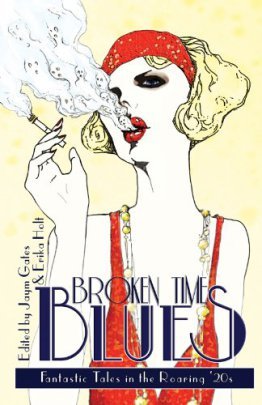 When I first got into dieselpunk, this is one of the first books I read… and it was a good idea, since this is still the dieselpunk anthology. It gathers many voices of the community, writing very different subjects, with very different moods and intents, but all falling neatly into the dieselpunk genre. It certainly displays the diversity of this genre, that sometimes is narrowed down too much even by dieselpunks themselves.
When I first got into dieselpunk, this is one of the first books I read… and it was a good idea, since this is still the dieselpunk anthology. It gathers many voices of the community, writing very different subjects, with very different moods and intents, but all falling neatly into the dieselpunk genre. It certainly displays the diversity of this genre, that sometimes is narrowed down too much even by dieselpunks themselves.
Not all the authors in the anthology are indies, but most of them are.
No blind tigers or coffin varnish here. Broken Time Blues may be poorly lit, and not in the best part of town, but it's classy joint, see? The cat's meow. So toss on your glad rags and get a move on. Make sure no one follows you, then take a right down the alley and knock three times on the brown door. There won't be a sig.. Code word's "applesauce." It's okay to get your friends hip to the jive, but hush. Speakeasy, Bulls and Mrs. Grundys might be listening. Inside you'll be amazed by twelve outlandish tales. An alien burlesque dancer; a monstrous, people eating goddess; a buried city of automatons; Picasso as a villainous, flesh-sculpting wizard; a fae detective; a bootlegging chicken; and more. Broken Time Blues: the 1920s as you've never seen them...but always wanted to.
Ooops! I Accidently Got Decaf
(Name a book you were expecting more of)
Time and Regret
M.K. Todds
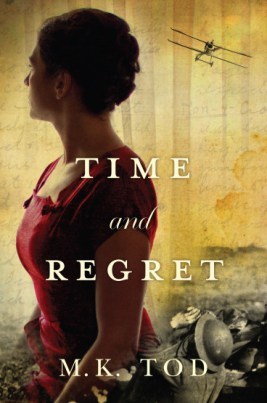 Not that I didn’t like it, but I was certainly expecting a different things from this book. It presents a dual timeline and this is where I probably got mixed up. A part of the story is set during WWI, while the other is set in the early 1990s. I was expecting the WWI section to have a lot more weight in the story, which turned out to be mostly a romance happening in 1991. My problem was that I was much more involved in the WWI section, so I really wanted to get more of that rather than the romance.
Not that I didn’t like it, but I was certainly expecting a different things from this book. It presents a dual timeline and this is where I probably got mixed up. A part of the story is set during WWI, while the other is set in the early 1990s. I was expecting the WWI section to have a lot more weight in the story, which turned out to be mostly a romance happening in 1991. My problem was that I was much more involved in the WWI section, so I really wanted to get more of that rather than the romance.
But of course, this is entirely just me, other readers will appreciated the book for the vary same reason it partially let me down.
When Grace Hansen finds a box belonging to her beloved grandfather, she has no idea it holds the key to his past—and to long-buried family secrets. In the box are his World War I diaries and a cryptic note addressed to her. Determined to solve her grandfather’s puzzle, Grace follows his diary entries across towns and battle sites in northern France, where she becomes increasingly drawn to a charming French man—and suddenly aware that someone is following her…
The Perfect Blend
(Name a book or series that was both bitter and sweet but ultimately satisfying)
Father and Son
Langston Hughes
This is not a dieselpunk story, but since it’s set in the very early XX century and it was written during the Harlem Renaissance, I’d say it falls nicely into the diesel era.
I should also say this leans more on the bitter side, eventually turning into true tragedy. I won’t hide I cried in the end, and still this is one of my favourite stories by Hughes.
It tells the story of a plantation owner and his near-white son, who he had from his black governess, who was the owner’s lover over many years and gave him many children. The relationship between these three characters (father, son and mother) is so extremely complex and still so extremely believable. These are all human beings trapped in a social reality they must cope with and which they don’t totally accept, though they fight it back in very different ways.
Absolutely mind-blowing and told with master storytelling skills.
Green Tea
(Name a book or series that is quietly beautiful)
The Wolf in the Attic
Paul Kearney
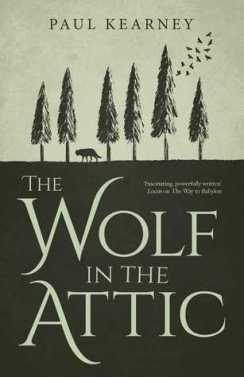 The Wolf in the Attic is set in Oxford at the end of the 1920s. The historical setting is beautiful and involving, you truly feel like you are there. But there’s magic in this world and you still feel like you might step into some such spots, where magic and history meet and merge.
The Wolf in the Attic is set in Oxford at the end of the 1920s. The historical setting is beautiful and involving, you truly feel like you are there. But there’s magic in this world and you still feel like you might step into some such spots, where magic and history meet and merge.
The author is a fan of JRR Tolkien and C.S. Lewis, who both appear in the story as characters and whose ideas and plot elements are merged into the story. Kearney did this with such skillful mastery that, should you not know where the original ideas come from, you’d probably think he came up with it for this specific story.
There is no adventure here, although there is indeed suspense and even a murder, but the core of the story it’s a girl’s journey to adulthood, which happens by steps and by choices.
One of the best books I’ve read recently.
1920s Oxford: home to C.S. Lewis, J.R.R. Tolkien... and Anna Francis, a young Greek refugee looking to escape the grim reality of her new life. The night they cross paths, none suspect the fantastic world at work around them.
Chai Tea
(Name a book or series that makes you dream of far off places)
Reservation Blues
Sherman Alexie
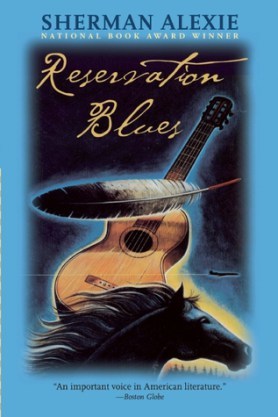 Yes, yes, I know this doesn’t have anything to do with dieselpunk, but you didn’t really think I would leave out my favourite author, did you? Besides, if Reservation Blues isn’t historically set, it does have a strong character of magic realism just like The Wolf in the Attic.
Yes, yes, I know this doesn’t have anything to do with dieselpunk, but you didn’t really think I would leave out my favourite author, did you? Besides, if Reservation Blues isn’t historically set, it does have a strong character of magic realism just like The Wolf in the Attic.
I know as well that an Indian reservation is no place to dream about, but the way Alexie presents his own reservation has something truly magical about it. It is indeed a place of poverty and even brutality, but underneath there is a magic, a power, buried into storytelling and remembrance. A connection with the past and with the Earth that can never be quenched and that may really save lives.
In spite of the realistic, unflinching depiction of life in the reservation, at the end of this novel you’re not really sure that’s a place you’d never set foot.
The life of Spokane Indian Thomas Builds-the-Fire irrevocably changes when blues legend Robert Johnson miraculously appears on his reservation and passes the misfit storyteller his enchanted guitar. Inspired by this gift, Thomas forms Coyote Springs, an all-Indian band who find themselves on a magical tour that leads from reservation bars to Seattle and New York--and deep within their own souls.
Early Grey
(Name your favourite classic)
Metropolis
Thea von Harbou
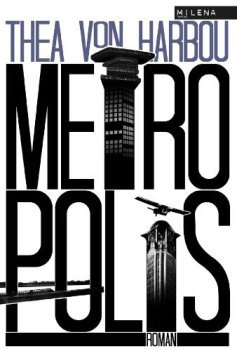 I read the book Metropolis a long time ago, before ever watching the film, and let me tell you, I loved it! I didn’t know what to expect from 1920s SF. It did sounds very different from what we’re accustomed to today, but I really really like the characters, their struggle, the dystopian setting, the twists and turns of the plot. It is indeed a fantastic story in its own right.
I read the book Metropolis a long time ago, before ever watching the film, and let me tell you, I loved it! I didn’t know what to expect from 1920s SF. It did sounds very different from what we’re accustomed to today, but I really really like the characters, their struggle, the dystopian setting, the twists and turns of the plot. It is indeed a fantastic story in its own right.
I know everybody knows the film (which is also fantastic), but if you get a chance, do try the book too.
The dystopian tale of class struggle, passion, faith, and ruination in the living city of Metropolis. Written Thea von Harbou, Fritz Lang's wife at the time, this is the original book upon which Fritz Lang's now infamous movie was based.
So, this is it. I hope you’ve found something of interest in here, maybe even your next read. And if you decide to do the Tag as well, don’t forget to let me know!
Have you read any of these books? Is there anything that hooked you? Tell me everything!
The post The Coffee Book Tag – Dieselpunk Style appeared first on The Old Shelter.
December 7, 2016
Gang Roundup – Dicember 2016
How is it that is already December????
I don’t know about you, but this year flew away for me. Was it a good year for you? It was a mixed bag for me, with a lof of mess at work, a demanding family life and of course (at least this!) the joy of publishing my fisr story as an indie author.
I won’t hide to you that I hope 2017 will be a calmer year. In fact, I wouldn’t mind if it were even a bit boring…
As for this blog and my stories, I have a few plans… but there will be a post for that.
Se this is the last RoundUp of the year. As always, a mix of 1920s news, dieselpunk posts, and some odds and ends about the diesel era in general. I hope you enjoy it. And if you come across anything that might be of interested, please leave a link in the comment section.
Dieselpunk Lexicon Part
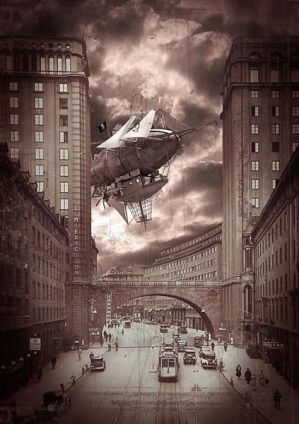 There were two more installments on Larry Amyett’sblog about the elements of Dieselpunk. I’m really enjoyinging this series.
There were two more installments on Larry Amyett’sblog about the elements of Dieselpunk. I’m really enjoyinging this series.
Retrofuturism is probably one of the most important elements of Dieselpunk. Certainly a large section of dieselpunk stories fall into this subgenre. Basically all dieselpunk films belong to this incarnation of the genre and so it’s understandable that most people think Dieselpunk only means Retrofuturism. Personally, I think Dieselpunk is broather than this, but I do acknkowledge the importance of this subgenre.
Dieselpunk Lexicon Part 5: Lovecraftian
There are a few things that make Dieselpunk very different from Steampunk, although many readers tend to think these two genres are one and the same. One of these distictive elements, in my opinion, is mood. Dieselpunk stories tend to be darker, and in the vain of noir, they also tend to have an ominous feeling to them. This feeling leads to a Lovecraftian imagination on the darker dieselpunks tories, the sense of a superior evel that cannot be defeated… though it’s often worth fighting.
Dieselpunk Lexicon Part 6: Decodence
Decodence (from Deco and decadence) is maybe the most defining part of what a dieselpunk story is, because it is all about vibe, whether it is a setting or just hints at the essence of the diesel era. It is very important in creating that mood that is authontically dieselpunk.
Larry suggests to read this article about decodence too. Very intersting.
What is Dieselpunk?
Fellow dieselpunk Tiyana Marie White has started a series of videos addressing the matters of Dieselpunk and diesel era setting. Dieselpunk is such a new genre that even dieselpunks don’t fully agree of what exactly it is, so it’s always intersting to hear the opinion of other people writing in the genre.
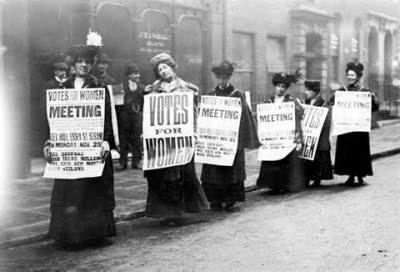 The ‘madness’ of revolting women…
The ‘madness’ of revolting women…Taking what we have for granted is one of the main mental habit a historical writers has to fight against. Some things are so ingrained in us, we are so sure that we have this right to exercise and that’s natural that we do, tha we often forget or don’t take into the right account, that that very right wasn’t at all granted in the past.
This article addresses the fight for the right to vote wemen fought in Great Britain. This fight was never this harsh here in Italy, so I really wasn’t aware what British women went through to affirm that right.
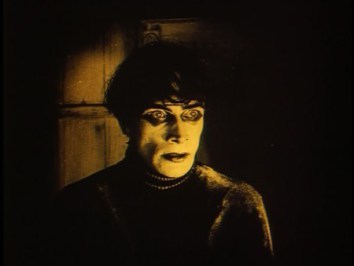 The Cabinet of Dr. Caligari (1920) A Silent Film Review
The Cabinet of Dr. Caligari (1920) A Silent Film ReviewI’ll admit that I’m developing a particular interest in German Espressionist films. The main characteristics of these films are what originally drew me to film noir: the black and white mode; the stark shadows in contrast with light; the strong emotional reaction this contrast arises in the viewer. And also the interpretation of reality, because expressionist films, just like noir film, almost always talk about something totally different from what you wantch on the screen.
The Cabinet of Doctor Caligaris is probably one of the most famous silent films… and with a good reason!
The Groundbreaking Work of Alphonse Bertillon – The Man Who Invented The Mug Shot
This is one fo those things that we tend to take for granted. To us, mug shot is how the work of the police is done, we never consider that there was a time where this didn’t existed and there was actually someone who came up with the idea.
I don’t know why, I’ve always found the idea of the mug shot kind of fascinating, and especially looking at these ancient photos – I don’t know, it’s like a window on another reality, which is oddly still very similar to ours.
‘Heavy casualties. Wounded, wounded, wounded’: stories of the battle of the Somme
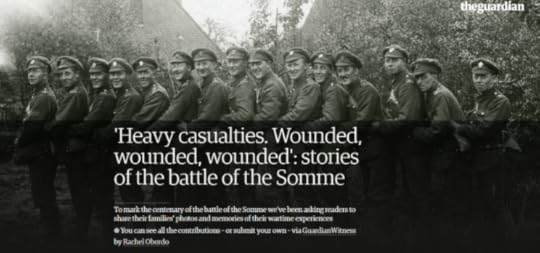
The Guardian online published this article last July, on the centenary of the Battle of the Somme, probably one of the most horrible battle in an overall horrible war. I only came across this now, thanks to a tweet by author Tony Schumacher.
I’m reading about World War I these days. My new project is set in the Weimar Republic, but I realised I cannot undertand that time without a good understanding of WWI. And I’m quite shocked. Not just for the war itself, which was more brutal and disctructive than we normally think, but because I see that Europe how it is today, the Europe I’m living in, what born then, in the blood of those trenches. You know I’ve always said that the 1920s remind me our time in a weaked way. Reading about those time and how thy relate to the place I live in today, how they still mirror my time, is kind of upsetting and enlightening at the same time.
The British Lion by Tony Schumaker
And while you’re at it, check out Tony Schoumaker’s series set in an alternative 1940s world where Germany won the war and Great Britain is occupied.
There are two books out at the moment, The Darkest Hour and The British Lion. They are both on my TBR list.

The post Gang Roundup – Dicember 2016 appeared first on The Old Shelter.
December 4, 2016
Quitting NaNoWriMo and the historical writer’s dilemma
So… as you may have noticed, the progression bar of my NaNoWriMo novel stopped halfway through. Yes, I quitted NaNo pretty early, and yes, this is not like me, I didn’t like making that decision, but I think it was the right thing to do.
I started NaNo feeling unprepared. I knew I wasn’t has ready as I could possibly be. I had worked out many of the characters’ arcs, had a basic idea for the plot and I had started researching historical Weimar Republic. I had indeed started doing what it needs to be done, but deep inside I knew it wasn’t time yet.
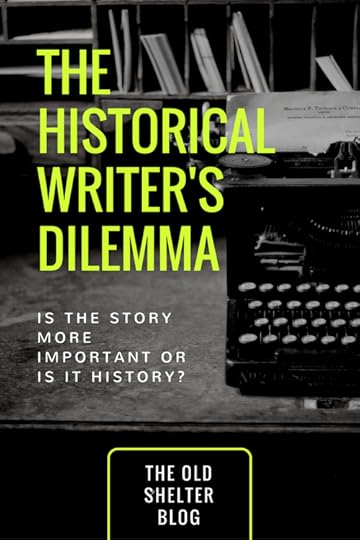
Still, writing the first chapters I though I might actually have done it. I really enjoyed writing about these new characters, and I was adding new ideas on the move. Then I noticed something: I was writing down the outline as I went along and around chapter 4 I realised it didn’t really have a direction. But what really worried me was that, when I got out of general settings and into a very specific, historical one (namely, the Berliner kabaret) I felt lost. I didn’t know how to envision the place and what was going on there, and especially how the characters would act in such place.
So I twitted about this and I was so incredibly lucky that a German historian answered my tweet, offering help. We had a long chat that night and it was absolutely illuminating. Not only because she corrected a lot of little mistakes I had made… but because I realised how unprepared I was historically. For example, I had made one of my main characters a politician. She told me in the 1920s there were very view professional politicians and so my character was unlikely to be one. She suggested a lawyer, because my character was into social issues, and only an educated person was likely to be concerned with such things. When you do this kind of basic mistakes that will taint a character’s development and motives, you have to stop and think what’s wrong with the story.
What’s wrong with my story is that I still don’t have the means to understand the era I’m writing about and so neither my characters and their motives. I decided to step back.
I’m sorry for the challenge, but I’m not sorry for the story, because I think this is what I needed to do. When I sort this out, it will be a much better story, I’m sure of it. Besides, I’m happy I tried, and for many reasons:
I’ve always knew I wanted to write this story, and now I’m doing it.
Ombretta Vivaldi and her story has floated in my mind for a couple of years now. I’ve always known that sooner or later I’d have written it, but kept pushing it forward, never truly committing myself to it.
NanoWriMo was the perfect occasion. I had to really start thinking about what I wanted to do with this idea and to actually put down some work and start crafting characters and plot.
I discovered I love these characters.
I’ve been working at Ghost Trilogy for six years. I love that story’s characters. I really care about them and maybe because I’m so fond of them, I was kind of hesitant to give my love to new characters. But as soon as I started planning Bones of the Titans I fell in love with these new characters too.
It was such an unexpected and wonderful feeling.
I discovered the story will be a mystery.
And let me telling you, this is kind of scary. I’ve thought that, although I love reading mysteries, I don’t really have the skills to write one. But that’s where the story is going and I can’t ignore it. So I think I’ll try my hand at this, let’s see where it takes me.
There will still be speculative elements to it. In many ways, Bones of the Titans is indeed Ghost Trilogy’s sister story, but on another level, it will be very different.
Writing about Europe feels completely different.
I’ve always said that researching Ghost Trilogy is an enriching experience in itself. The 1920s echo our times so strongly that the more I learn about it, the more I understand the place and the time I’m living. This is true even when I research 1920s America.
But researching the place where I live and a history that is mine and still filters into the world I live today is a mind-blowing experience and I’m very happy I decided to go this way.
The experience with the German historian and my research about 1920s Europe have given me a lot of food for thoughts. About perspective, but also about what being a good historical novelist means.
What does ‘write what you know’ truly means
“Write what you know” is probably the most give of writerly advices and one of the most misunderstood. Not that I don’t agree, on the contrary. I do think we need to know what we’re writing about. Which is kind of the answer, isn’t it? I’d say the advice shouldn’t be ‘write what you know’ but rather ‘know what you write’.
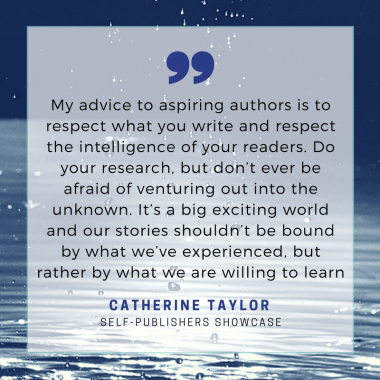 We can write about whatever subject we feel about, I truly believe it. I also believe that we should first educate ourselves on what we’re writing about.
We can write about whatever subject we feel about, I truly believe it. I also believe that we should first educate ourselves on what we’re writing about.
That’s where the misunderstanding comes in, I believe. When we start off writing, there are lots of things we need to learn about the writing business itself. I don’t want to scare anyone, but it takes years to muster the writing techniques to a level that will allow you to tell the story you want in an effective way. Of course, while we’re learning this, we have little mental energy spared to do anything else. So I suppose the ‘write what you know’ advice makes sense especially when we start off writers. If we write what we already know, we don’t need to make the extra effort to learn a new subject while learning how to write about it.
I didn’t know how to write a novel when I started writing Ghost Trilogy, and this in spite of having written short stories most of my life and having spent seven years on a online workshop learning how best to use most writing techniques. I wasn’t a newbe, and yet I still had to learn how to write a medium that was completely new to me: novels.
Still it is also true that we can learn anything. I’ve said this before: when I first started researching Roaring Twenties America, I didn’t know a thing about it. I now know that it took me about one year of intensive research just to understand what I was even researching. The United States proved to be a foreign land more than I expected. So many aspects of American life are different from the same aspects of life here in Europe, and it took me time and research just to understand this. Luckily, I met some fantastic American friends online whose help has been invaluable with my endeavour.
Was learning to write a novel and research an era at the same time the smartest thing to do? Probably not. It was a time- and energy-consuming task. It is quite possible that had I written my first novel about a subject I already knew, that book would be published by now. I probably went that rout because at the time I didn’t really know what I was getting into. I’m not sorry I did it. It could be done, I’m actually very happy I did it, but this awareness is the reason why I decided to go a different way with Bones of the Titans.
Historical novels, a foreign land
If we think about it, a historical novelist will always write about someone different, at the very least, because his characters will live in a different time, where everything, from lifestyle to value systems, to believes and behaviours and even the way of thinking, feeling and speaking, will be different from the novelist’s own experience.
To this extent, a historical novelist will always write about a foreign land and been aware of this diversity is the first most important thing about researching. Whether the setting is familiar or completely alien, whether the culture is similar or very different from their own, historical writers will always have to make an effort to look in from an outside position and above all to be aware of their position.
Taking things for granted is the biggest risk. Because we take something for granted in this place and time, it doesn’t necessarily mean it will still be as granted in another place and time. Even in the same place but in a different time, things might not be as granted.
In this regard, ‘know what you write’ (and ‘write what you know’?) means identify the differences and internalise them to a point you’ll instinctively know what your characters are likely to feel in their foreign position.
What they are likely to feel. It will always be an interpretation.
Historical novels are always about a foreign land. They are always about someone different #histfic
Click To Tweet
As I research 1920s Europe, I’ve learned a different level of learning. Europe is my history and my culture. It already belongs to me in a way America never will and even if I’m going through the same process of learning, even as I pursue the same kind of information and try to build the same kind of mental image of the time, there is something profoundly different about the learning itself. My attitude isn’t “So, is that it?”, but it’s rather, “So, that’s why”.
My position is still that of an outsider, but not quite. 1920s Europe is a foreign land as far as history goes, but on a different level, it is very much me, a place I can look at from inside.
In this case, ‘write what you know’ means write what you don’t need to learn. What is already inside you, to such a deep level that sometimes you don’t even realise it.
It is about history, but also about culture, which is itself – in part – a historical matter.
Personally, I don’t think one position is better than the other. Both offer great possibilities, as long as the author is aware of where he stands.
When you look in from the outside you have an extra step to take. You may never fully understand the point of view of the people you’re looking at, but you will have your own point of view to offer. From your outside position, you’ll have a more objective view, you’ll see things in a different perspective, and your own view will ad a new light to the subject.
When you look from the inside, you’ll be part of the subject matter and so you’ll be able to offer insights that are sometime invisible from the outside. You’ll speak with an authentic voice that no outsider will ever gain, although your view may be narrower – because too much involved – than that of an outside onlooker.
As authors, being aware of our position with regard to the subject matter is part of the honesty we owe to our readers.
Is Story more important, or is it History?
In the days leading up to NaNoWriMo I felt I wasn’t as historically prepared as I should have. What convinced me to try anyway were a couple of friends who suggested I should write the story first and then adjust it to the setting.
In a way that made sense, because, as in all of storytelling, also in historical fiction the story should always come first. I’ve read historical novels where the portrayal of history, sometimes extremely accurate, was so dominant that the story became nearly an accessory. The character’s personal arcs where guided by historical events so heavily, they were barely true arcs and what happened to those characters was almost irrelevant in comparison to history unfolding beside them.
But when during NaNoWriMo I came to a point where I needed to know more about the historical setting, I realised my lack of knowledge hurt the story as well. Letting the characters’ arc become the only thing I relied on, meant thwart history (even unwittingly, because of my mere ignorance of things) in a way that might turn the story into something that had no historical characteristic. Something that may happened anywhere in history, including today.
It wasn’t just a matter of setting. Sure, I had no idea how to portray a Berliner kabaret. I tried to rely on what I know about speakeasies, but I soon realised that wasn’t working. Although there are similarities between the two experiences, there are also very important differences and I could not ignore it.
Still, I could have pretended to be in a speakeasy, write the scene, then during revision – and after more research – change the setting to a more accurate Berliner one. I actually tried to do that as well.
It didn’t work.
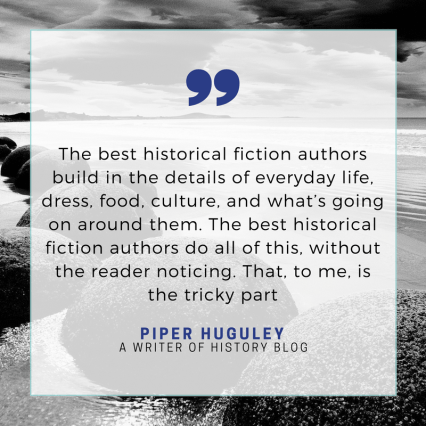 If it could have worked for the setting, it certainly didn’t work for the characters. At least two of the characters that my protagonists meet in the kabaret will be central to the plot. This means that their motives will influence the movements of the plot itself. The reasons why characters do what they do and why they want what they want depend on their personality, this is true, but it also depends on the environment where they live and act. Besides, the environment where they live and act depends in part on the characters’ reasons and desires. This is true for any genre, but in historical fiction it means the author must be aware why a certain kind of environment existed, what kind of people frequented it, and especially why.
If it could have worked for the setting, it certainly didn’t work for the characters. At least two of the characters that my protagonists meet in the kabaret will be central to the plot. This means that their motives will influence the movements of the plot itself. The reasons why characters do what they do and why they want what they want depend on their personality, this is true, but it also depends on the environment where they live and act. Besides, the environment where they live and act depends in part on the characters’ reasons and desires. This is true for any genre, but in historical fiction it means the author must be aware why a certain kind of environment existed, what kind of people frequented it, and especially why.
The historical environment will influence character building, which in turn will influence the story. If you get a character wrong, you may botch the entire plot in a way that won’t work overall, to a point that you might be forced to rethink the entire story.
This is why I decided to stop. Not knowing the historical environment means the impossibility to create characters that will work in a credible storyline.
To me, Story and History are twin elements in a historical novel. They go hand-in-hand, they influence each other, they even enrich each other. If you only have a Story that might work in any setting, you might have not use the historical potentialities at their fullest. And if you don’t know your History well enough, you might be missing on fantastic plot ideas that will greatly enhance your Story.
The more you know, the less you know
When is it, then, that you know enough to be ready to write?
The Dunning-Kruger Effect theorises that the less you know about a subject matter, the less you’re aware of how little you know. When you learn about any subject matter, every little detail you learn will open up tens of other unforeseen possibilities of learning, things you didn’t even know you don’t know.
As I like to put it, the more you know, the less you know.
This is the reason why many historical novelists suggest not to get caught up into the research mechanics. You’re bound to go from one fact to the other, realising you need to learn more, down a rabbit hole that might indeed prevent you from actually write the story. I suppose this is why my friends suggested me to write the story first.
So the critical question is: when is it that you know enough of an historical setting to be able to create a credible plot?
I’m afraid only experience may answer this, because there will be a different answer for any different author.
My own experience tells me that if I can’t place a character in an environment and know why that character is there, I don’t know enough to write that story.
when is it that you know enough of an historical setting to be able to create a credible plot?…
Click To Tweet
As a writers doing research at the beginning of the XXI century, I consider myself very lucky. I have access to a lot more info than I myself could reach only a few years ago.
Internet
Internet is any researcher’s best friend… or is it?
Don’t get me wrong, I love the net. It allows you access to documents (when they are digitalised) you’d never be able to consult in person and it gives you the possibility to acquire information (for example by buying books online) you’d probably be unable to get any other way. But it does have a few very important shortcomings, in my opinion, which is the reason why I personally think no research is truly complete when only conducted online:
Information tend to be either too superficial or too specific. This is why I normally use the net to get a general idea that then I’ll research more deeply on books, or to find specific articles after I’ve learn about a subjects on books.
I never assume the information I get from online articles is enough to build my knowledge of a matter. On the other hand, I’ve found online such specific articles just because the net allows me to search for very specific terms, in a way book descriptions don’t allow (yet).
You will find online only what you’re looking for. This means that to find something useful about any subject online, you already need to know that subject well enough to make a meaningful search. If you don’t, you might query about inaccurate matters that the net will nonetheless confirm (because you can really find everything and the contrary of everything online), leaving you none the wiser that you are assuming something which is not accurate.
Sometimes is not easy to tell the poorly researched article from the thoroughly researched one. This goes hand-in-hand with what I’ve pointed out above. If you don’t know a subject well enough already, you might not have the means to tell a thoroughly researched material from a superficial one and so you may learn inaccurate things without knowing it.
Books
In a general sense, books are more reliable teachers. This doesn’t mean there aren’t poorly researched books (I have stumbled upon my share of them), but it’s generally more easy to tell whether a book is accurate or not because a book will have a more ample breath of interest. You might not realised that an article of 3000 words isn’t really accurate about how flappers dressed, but if you read an entire book about it you’ll have a considerably higher possibility to judge the author’s material, depth of knowledge, way to connect information, general understanding of the subject.
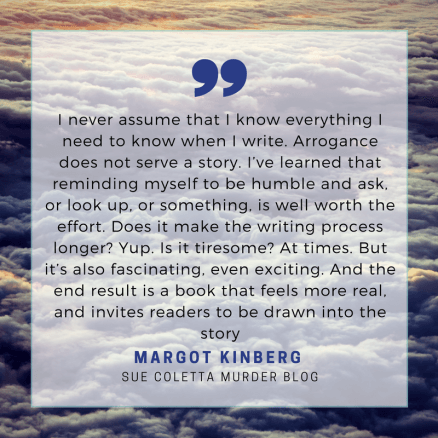 This global treatment of subjects that is common in books is what I love the most about them. If you do a search online on how flappers bobbed their hair, you’ll find a host of short articles about it. You’ll find photos, video and lists of links, but they will all just answer your query: how did flappers bob they hair?
This global treatment of subjects that is common in books is what I love the most about them. If you do a search online on how flappers bobbed their hair, you’ll find a host of short articles about it. You’ll find photos, video and lists of links, but they will all just answer your query: how did flappers bob they hair?
If you buy a book because you want to learn how flappers bobbed their hair, that book is very unlikely to be just about that. It may be a book about 1920s fashion. It may be a book about the flapper movement. It may be a book about youth in the 1920s. It might even be a book about everyday life in the 1920s. This means, together with what you are specifically looking for, you’ll learn a lot of other related things and that’s exactly what builds your understanding of the subject in a larger way, a way that will then allow you to judge the accuracy of other material you’ll come across.
Books will give the historical writer an overall feeling for the era, not only a particular info they might be looking for. If cultivated, this will give the writer a general, instinctive feeling for the era that will allow them to judge by themselves whether something is likely for that era even when they don’t actually know the answer, which in my opinion is the most valuable kind of knowledge.
When you can guess whether something is likely to have been in the era you’re writing about… that – in my opinion – is when you’re ready to plot an historical novel, because even if you get the answer wrong, it won’t be so utterly wrong that it will disrupt your entire story.
A fried of mine theorised this in terms of numbers. She has devised a list of 50 kinds of books you need to read before even thinking to write about a historical era.
Handy, isn’t it?
So, are you a writer or a reader of historical fiction? How do you feel about Story and History? What do you appreciate the most, History or the Story? Do you even make a distinction?
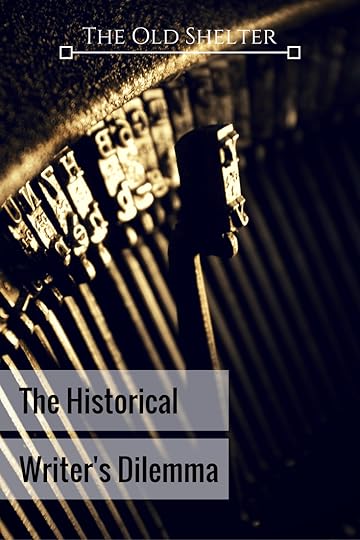
The post Quitting NaNoWriMo and the historical writer’s dilemma appeared first on The Old Shelter.
December 2, 2016
Give in to the Feeling – A dieselpunk novella giveaway
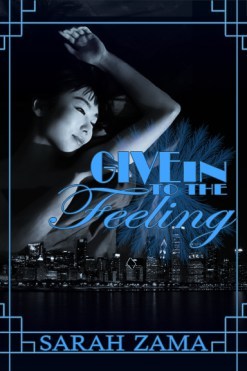 As promised, here it is, my very first giveaway!
As promised, here it is, my very first giveaway!
I’m so very excited, not only because of the giveaway itself, but because of what I am giving away: four copies – and I mean PRINT copies – of Give in to the Feeling.
That means my book will be a real book! I mean with a cover, and pages and ink, it will be something to touch and carry around – if you are like me, there will always be a book in your bag, or… whatever men use to carry books around – and maybe write on its pages and underline it, dogear it and even wrapped it up and give it as a present.
I mean, how exciting is that???????
All of this in exchange for just your email (newsletter subscription offer still apply, so if you enter you’re email in the giveaway, you’ll also receive the Roaring Twenties A to Z PDF for free).
——————————————————————————–
#mc_embed_signup{background:#fff; clear:left; font:14px Helvetica,Arial,sans-serif; }
/* Add your own MailChimp form style overrides in your site stylesheet or in this style block.
We recommend moving this block and the preceding CSS link to the HEAD of your HTML file. */
Subscribe to my mailing list and getg a chance at winning a print copy of my novella GIVE IN TO THE FEELING – You wil receive a FREE copy of the PDF “Roaring Twenties A to Z”
* indicates required
Email Address *
First Name
——————————————————————————–
The giveaway will be on until 31st December
Anyone can enter the giveaway on my blog, I will send the book wherever you live.
Good luck everyone… and good read!
The post Give in to the Feeling – A dieselpunk novella giveaway appeared first on The Old Shelter.
November 25, 2016
Dieselpunk Black Friday
Well then, this is the first time I have a book on sale on Black Friday and so I though I’d join in the madness. Not that I expect many people to notice my little book in the ocean of bargains of this day, but if any of you wants to grab the ebook for 99c you’re more than welcome.
The promotion will actually be on until Cyber Monday 28th November, so you have a few days to think about it… but not too many, eh!
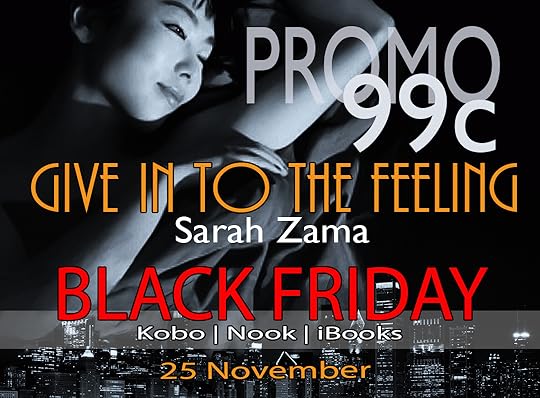
Kobo
Barnes&Nobles
Smashwords
iBooks
Give in to the Feeling is not available on Amazon, but don’t despair, my Kindle reading friends! You can get a .mobi file from Smashwords and I promise it will work just fine.
And stay tuned because on 1st December I’ll will be launching my very first Givaway. I am so excited!
The post Dieselpunk Black Friday appeared first on The Old Shelter.

